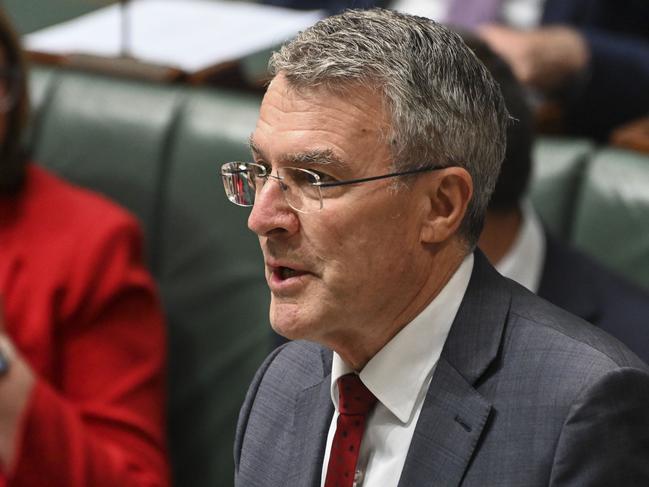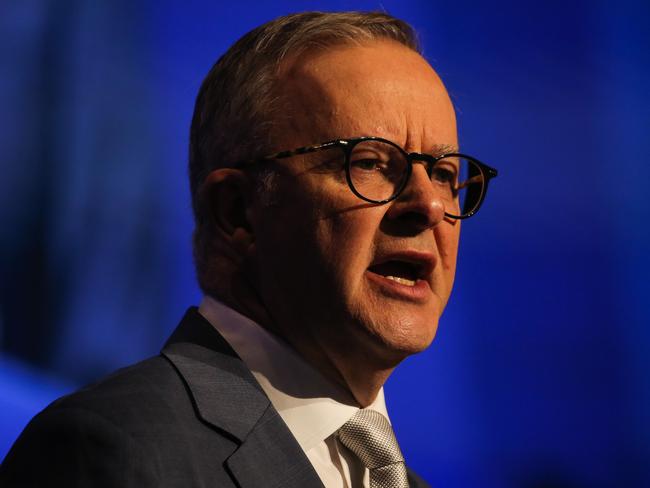Wording of Constitutional change to enshrine Indigenous Voice to be revealed
Australians are due to find out how the Constitution would be changed to enshrine an Indigenous Voice to parliament, but the debate isn’t settled yet.
Australians are about to find out how the Constitution would be changed to enshrine an Indigenous Voice to parliament.
But Attorney-General Mark Dreyfus is remaining tight-lipped on the wording of the draft amendment, refusing to confirm speculation it could be altered to win over the federal Liberal Party and other conservatives.
The referendum working group which has been debating the amendment to be put to Australians at a referendum later this year will meet for a final time on Thursday and provide its report to the government, with Labor to reveal the phrasing by the end of March.
Mr Dreyfus has declined to confirm reports in The Australian newspaper and The Sydney Morning Herald that he proposed changing the wording when he met with the working group last week.
“The working group is finalising its advice to the government on the constitutional amendment to enshrine an Aboriginal and Torres Strait Islander Voice in the Constitution,” Mr Dreyfus said on Monday.
“The government’s position will be clear when the Constitution Alteration Bill is introduced later this month.”

The working group – co-chaired by Indigenous Australians Minister Linda Burney and senator Patrick Dodson – is made up of pro-Voice representatives from Indigenous communities who are advising the government on what the referendum should ask.
Australians will vote later this year on whether or not the Constitution should be amended to enshrine an Aboriginal and Torres Strait Islander advisory body or “Voice” to advise politicians on policy issues affecting their communities.
The specifics of how the Voice would operate and be structured would be thrashed out in parliament during the usual process of creating legislation if the referendum gets the double majority it needs to succeed.
There has been some disagreement over how the proposed change to the Constitution should be worded, including whether the Voice should have the power to advise the executive government as well as the parliament of the day.
Giving the Voice the ability to advise federal cabinet has been contentious among some conservatives and lawyers who are concerned it could lead to legal challenges in the High Court.

Anthony Albanese unveiled the proposed amendment at the Garma festival in East Arnhem Land last year, including that the “Aboriginal and Torres Strait Islander Voice may make representations to parliament and the executive government on matters relating to Aboriginal and Torres Strait Islander peoples”
“These draft provisions can be seen as the next step in the discussion about constitutional change,” the Prime Minister said at the time.
“This may not be the final form of words, but I think it’s how we can get to a final form of words.”
With the federal Liberals yet to come to a position on whether or not to support the Voice, The Sydney Morning Herald reported on Monday that Mr Dreyfus and the government’s lawyer, Solicitor-General Stephen Donaghue KC, proposed to the working group that seven additional words be added.
They reportedly proposed adding the words “and the legal effect of its representations” after the third clause of the proposed amendment.
The original clause stated: “The parliament shall, subject to this Constitution, have power to make laws with respect to the composition, functions, powers and procedures of the Aboriginal and Torres Strait Islander Voice”.
Top barrister Bret Walker SC has come out publicly to support the Voice being given the power to advise the executive government and denounced legal colleagues who have opposed the proposal.
The leading constitutional lawyer reiterated his position in an interview with ABC Radio on Monday.
“Yes, of course, they should be able to be representations to the executive,” Mr Walker said.
“And what is done with them, is in my view, going to be a matter for the executive. And so, I don’t see that this is a point of contention of any substance at all.”



